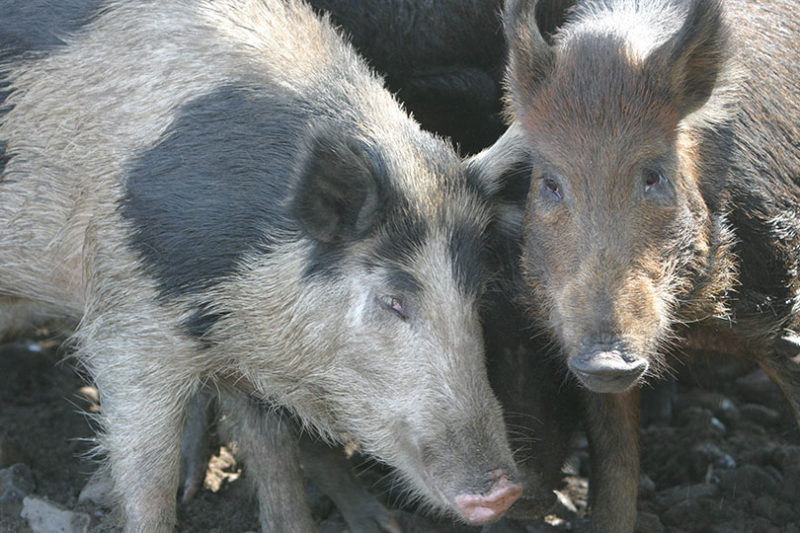By Julie Tomascik
Editor
A bipartisan bill in the U.S. Senate would make permanent a pilot program created to control feral swine.
The bill was introduced by U.S. Sen. John Cornyn of Texas and co-sponsored by U.S. Sens. Ben Ray Lujan (D-N.M.), Tommy Tuberville (R-Ala.) and Raphael Warnock (D-Ga.).
“Feral hogs have caused hundreds of millions of dollars in damage across the state of Texas, and we need to use every tool at our disposal to combat this widespread problem,” Cornyn said. “This pilot program has successfully reduced the amount of feral swine across the country, and making it permanent would allow us to build on its progress.”
The pilot project, Feral Swine Eradication and Control Pilot Program, was first funded through the 2018 Farm Bill with $75 million to address the threat the wild hogs pose to agriculture, ecosystems and human and animal health.
Pilot projects were included in 16 counties in Texas.
There are three counties in the Panhandle—Hartley, Oldham and Potter. There are four counties along the Red River—Clay, Hardeman, Wichita and Wilbarger. In the Upper Leon River area of Central Texas, three counties—Comanche, Eastland and Erath—are included.
After seeing success, the program was expanded to Milam and Williamson counties in Central Texas, as well as Bee, Nueces and San Patricio counties along the coast. The project was also expanded in the Panhandle to include Dallam County.
Other participating states include Alabama, Arkansas, Florida, Georgia, Louisiana, Mississippi, North Carolina, Oklahoma and South Carolina.
In Texas, the program is administered by local soil and water conservation districts, Texas State Soil and Water Conservation Board (TSSWCB), Texas Wildlife Damage Management Association, Texas A&M Natural Resources Institute and the U.S. Department of Agriculture’s Natural Resources Conservation Service and Animal and Plant Health Inspection Service.
Texas Farm Bureau (TFB) joined the effort to help maximize the program’s effectiveness.
“The feral hog population has been growing all across Texas, but we are seeing success in areas where landowners are actively engaged with USDA to reduce numbers through the pilot program,” Tracy Tomascik, TFB associate director of Commodity and Regulatory Activities, said. “Fewer hogs mean lower impacts to agriculture and improves ecological conditions.”
TFB is working with lawmakers to increase the amount of funding available through the Feral Swine Eradication and Control Pilot Program.
There are an estimated 2.6 million feral hogs in Texas.
Crop damages and control costs associated with feral hogs totals around $1.5 billion annually.
The destructive species is now considered a national threat due to the liability they create for Texas waterways and ecosystems.

